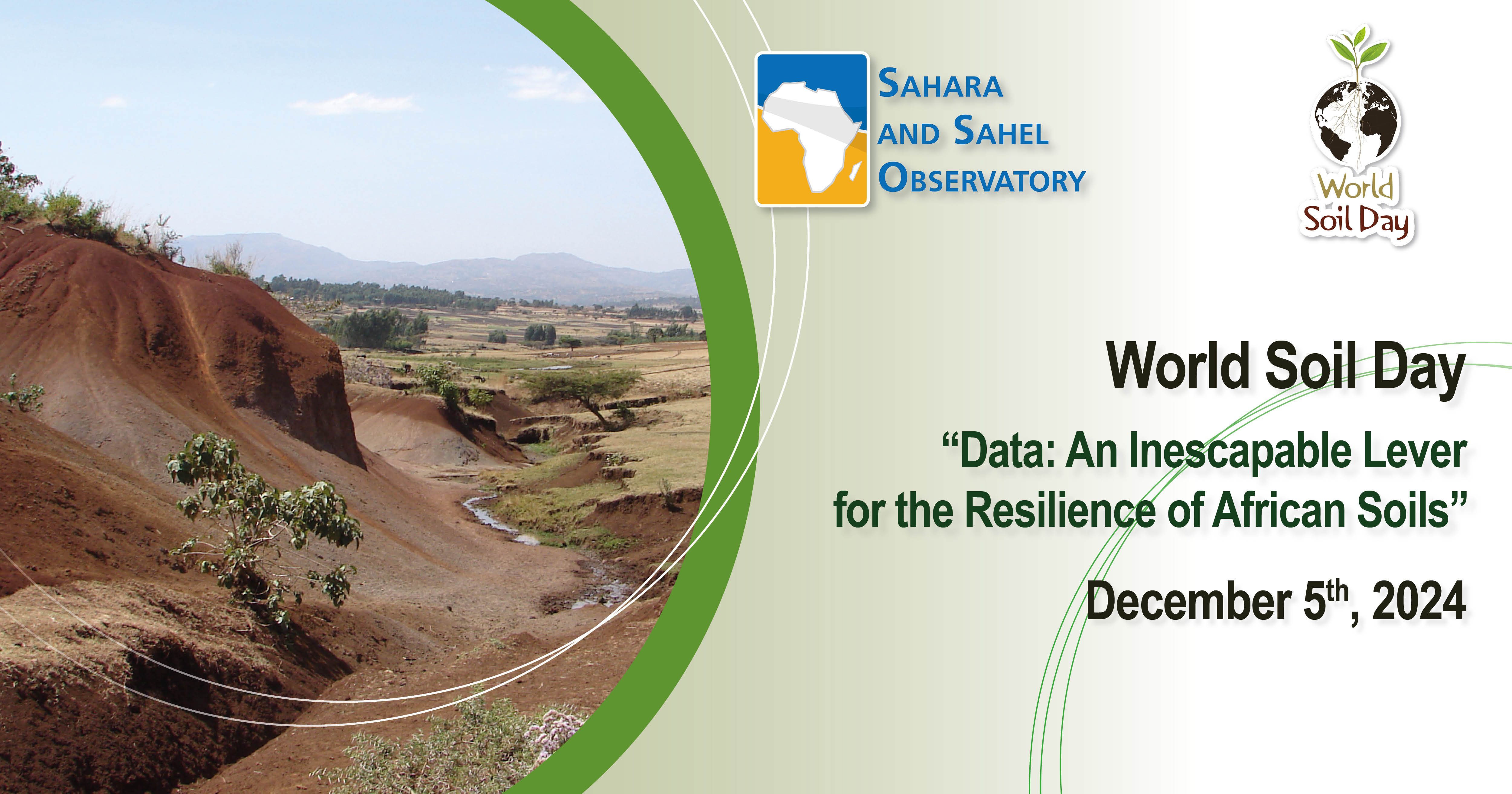World Soil Day – December 5, 2024 “Data: a key tool for the resilience of African soils”

Mr Anis GHATTASSI
Project Management Officer
Sahara and Sahel Observatory
Even though they are often perceived as a second-class component, soils are the fundamental foundation of everything that rises, develops and thrives on Earth. In Africa, they play a vital role in ensuring food security, supporting biodiversity and combating climate change. However, they undergo unprecedented pressure. Degradation, erosion and loss of fertility compromise the livelihoods of millions of people across the continent. On December 5, 2024, the world marks World Soil Day under the theme, “Caring for soils: measure, monitor, manage”, and highlights a core idea: “to protect this fragile treasure, we first need to understand it better”. Soil data is therefore essential to guide this understanding.
Africa is a continent where soils determine the pace of life for many communities. However, land degradation is a bone in the throat. According to estimates from the United Nations Convention to Combat Desertification (UNCCD), nearly 65% of African agricultural land are being somehow degraded. Exacerbated by the impacts of climate change, salinization, erosion, nutrient depletion and poor agricultural practices are playing havoc. Fortunately, collecting and using soil data is emerging as an effective and sustainable solution. Thanks to modern technologies such as remote sensing, GeoAI, geographic information systems and digital databases, it is now possible to perform real-time monitoring of the soil conditions, locate risky areas and develop targeted strategies for their rehabilitation.
Considerable efforts are being made across the continent to improve the health of the soils. The Soil Initiative for Africa is a flagship initiative, launched by the African Union and aims to restore degraded soils and improve their productivity by introducing technologies adapted to local contexts. By promoting local solutions, such as the use of balanced fertilizers and the adoption of sustainable agricultural techniques, soil fertility is maintained and less exposed to degradation. The success of this program also relies on strengthened regional collaboration, where data sharing and consultation between the countries make it possible to implement more consistent, effective and sustainable land management policies. However, collecting soil data requires modern infrastructure, state-of-the-art equipment and qualified human resources, which, unfortunately, are missing in many African regions. Even when such data exist, they are often scattered across different institutions and difficult to access; their scope and impact are therefore limited. That being said, challenges should not overshadow the opportunities that soil data offers by investing in the necessary infrastructure and training decision-makers and local communities.
Regional platforms such as MISLAND Africa, developed by the OSS, use an integrated land degradation monitoring system based on the analysis of multiple indicators, including land vulnerability to desertification. They make it possible to align data sharing and foster increased cooperation between the countries.
Similarly, raising awareness among the populations, especially farmers, on the importance of soil knowledge can help transform practices in the long term and ensure sustainable impact.
Protecting the land that lies beneath our feet is securing our future, for every piece of sand, every patch of soil, every initiative taken today will shape the world we will pass on to future generations.
